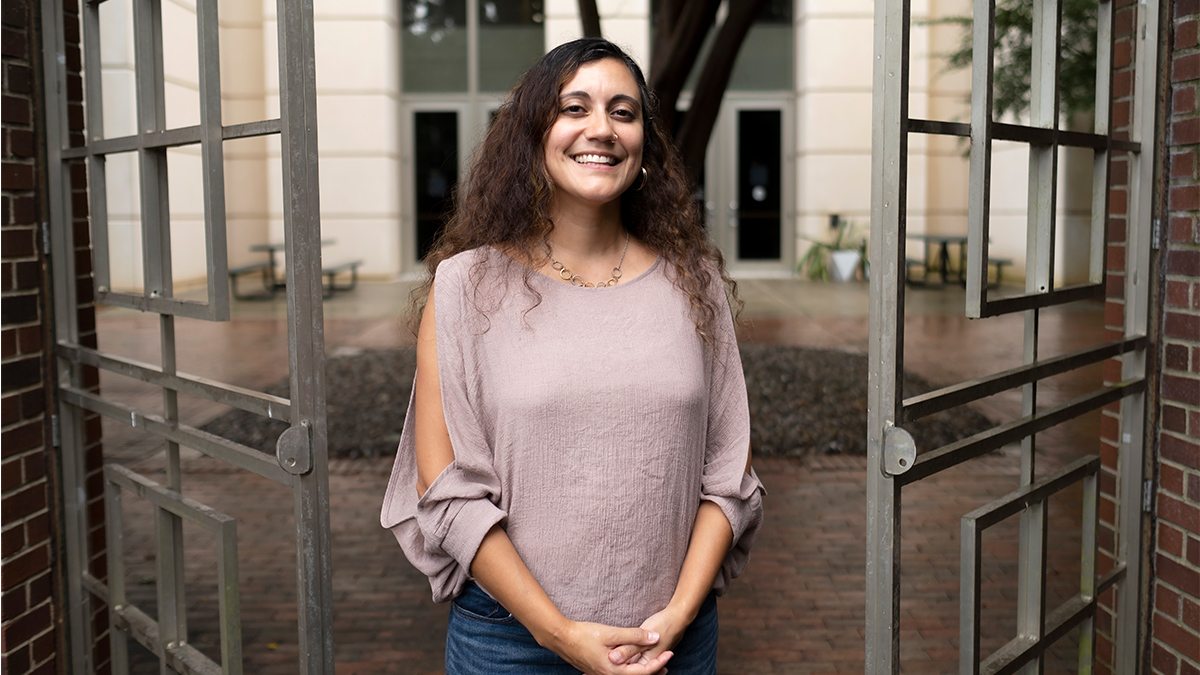Meet a Tar Heel: Emily Chávez
Incoming master’s degree student Emily Chávez is bringing 15 years of experience as an education professional and newly-elected school board member.

Even when Emily Chávez was young, she knew she wanted to spend her life helping people.
After 15 years of working in education, Chávez is starting a new path toward that purpose by helping address social inequity as a graduate student at Carolina’s School of Social Work.
“I feel drawn to social work because there are so many different social issues that can be addressed through effective policy, and I want to actively contribute to researching and creating policy that makes people’s lives better,” says Chávez, who will be a Weiss Urban Livability Fellow at Carolina.
After moving to Durham in 2003 and then receiving her master’s in teaching, Chávez taught high school but wanted to further equitable educational access for young people, particularly students of color, undocumented students and LGBTQ students. She also served as outreach program coordinator for the UNC-Duke Consortium in Latin American and Caribbean Studies, the director of equity and justice for an independent school and the director of the DREAM project at the UNC School of Education.
“I saw the school system from many different angles, and I feel that schools are a place where there’s just tremendous potential and impact on children’s lives because they spend so much time there,” Chávez says. “I’ve seen the impact of what can be possible in an education setting, as well as some of the harms that are pervasive in the system.”
Chávez decided to take action: she applied to the UNC School of Social Work and entered the political sphere by running for Durham Country’s school board. In January, she learned that she was accepted into the master’s of social work program, and in May, she won a seat on the school board.
“I felt called to run for public office because I saw the power of education close up during my time as a teacher, and I experienced the joys and challenges with my students and knew they deserved every opportunity,” says Chávez.
While actively making education policy decisions as a school board member, Chávez will also study how social work can be used to better the lives of students in the classroom and at home.
Chávez plans to research intimate partner violence, housing injustice and marginalized communities and will work alongside Tonya Van Deinse, a clinical assistant professor, on a study on the experiences of people who experienced crime, with attention to marginalized populations. She will also be out in the community, supporting victims of intimate partner violence with the LGBTQ Center of Durham.
“My life has been touched by some of these issues, so I can bring my personal experiences as well as what I’ve seen as an educator,” Chávez says. “Carolina has one of the best social work programs in the country, and I wanted to study in a program that was rigorous and would challenge me.”
After completing her master’s degree in social work, Chávez hopes to continue her path in academia and conduct research, as well as teach, but this time in higher education.
“I would love to teach again because I’m a teacher at heart,” Chávez says. “I also want to complete research that is community-engaged and ensures that those participating in research maintain their agency and autonomy.”
When she begins the next step in her academic career on Aug. 15, Chávez will be working toward creating a safe, more equitable community for her former students and continuing her life’s mission of helping those around her.
“I think about my former students all the time, their resilience, their pain, their strength and their longing for joy and life,” Chávez says. “They inspired me then, and now I can use social work to keep making this world a better place for them.”




